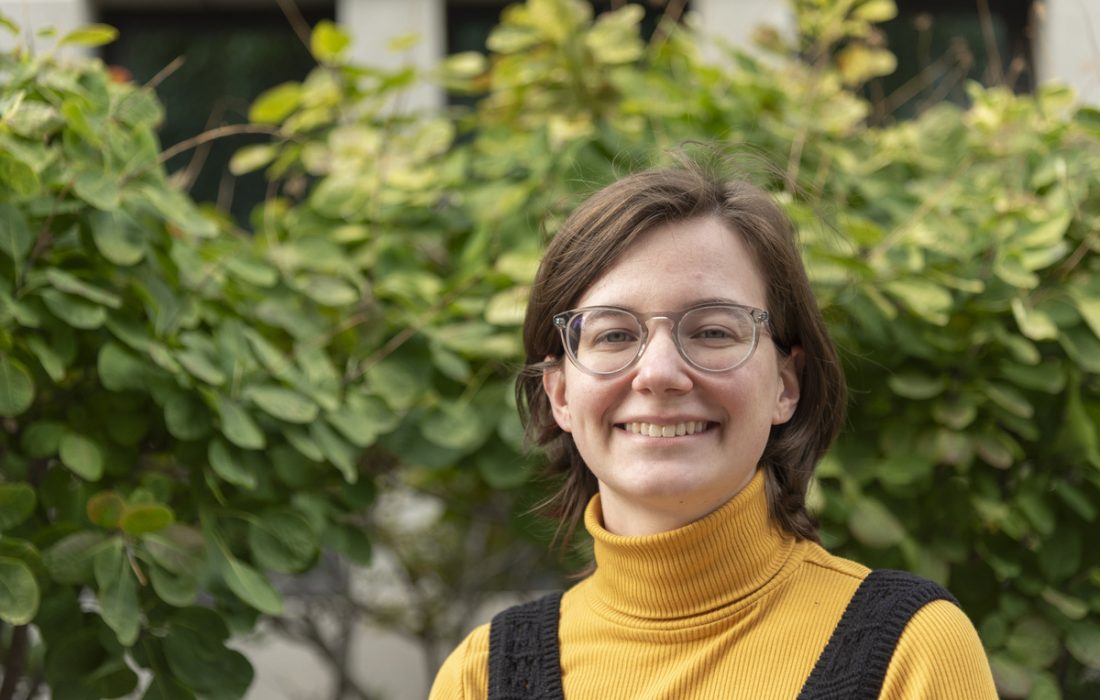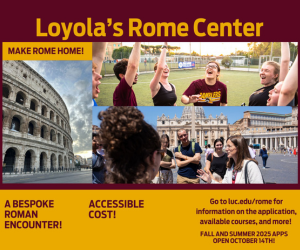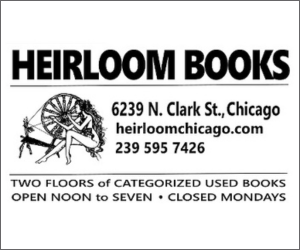One of the first things I did as an online writer and social media intern for a news station in the Quad Cities — a metro area three hours west of Chicago — was livestream the small Moline pride parade on the station’s Facebook. Throughout the stream, I had to moderate a steady flow of …
Why I Continue to Write about LGBTQ+ Issues in Small Cities
One of the first things I did as an online writer and social media intern for a news station in the Quad Cities — a metro area three hours west of Chicago — was livestream the small Moline pride parade on the station’s Facebook.
Throughout the stream, I had to moderate a steady flow of unsavory comments. They called the parade participants groomers, freaks and unholy. They wondered why their hometown would allow such a parade.
While hateful comments rolled in, people dressed in bright colors and walked alongside decorated cars, handing out candy and smiling. A few came up to me to wave at my phone camera and drop some lollipops in the bag around my arm. The parade was small and quick, but it was overwhelmingly positive.
When my coworker and I volunteered to livestream the parade, we knew what to expect from Facebook. There’s no way to turn off comments while live, so our only choice was to hide anything hateful and mute people as needed.
This pattern of hateful comments repeats itself whenever the station’s Facebook posts a link to any article tangentially linked to LGBTQ+ issues.
The Quad Cities area isn’t entirely rural. Set on the border of Iowa and Illinois along the Mississippi River, the five main cities — Moline, Rock Island, Davenport, East Moline and Bettendorf — and surrounding metro area are home to nearly 400,000 people, according to Census Reporter. It’s not exactly the type of place you imagine when thinking about conservative people in Facebook comments.
Outside of the main cities, though, the landscape shifts into cornfields, tractor factories and single-stoplight towns. Of the nearly 20 counties in the news station’s viewing area, only two have more than 100,000 people in them, according to the U.S. Census Bureau.
Looking at each county’s voting results in the 2020 election reflects conservative sentiments. Of the same 20 counties, only three voted Democrat, according to official election results from Iowa and Illinois.
Rock Island County in Illinois, which includes three of the five Quad Cities, is one of those Democrat-voting counties. Its residents helped elect Rep. Eric Sorensen to Illinois’ 17th Congressional District, the first openly gay lawmaker from Illinois in Congress.
In Iowa, Coralville and Iowa City of Johnson County voted blue in 2022 while Scott County — encompassing Davenport and Bettendorf — is more purple.
Outside the cities though, the politics lean more to the right.
Why does it matter how people vote? For me, it means a good chunk of people reading what I write for the news station’s website would despise me for falling outside the gender binary.
When I volunteer to cover a story and meet people in the community, I’m always met with kindness. The people I’ve met love being on the news, especially for something fun and silly like a bullfrog race at a Fourth of July festival or a car show at a senior living center.
It feels good to be welcomed by people you’ve never met. People aren’t nearly as friendly in the San Francisco Bay Area where I grew up or even in Chicago. It’s a neighborly sentiment hard to find outside small towns.
Their kindness feels conditional for me, though. If I were to insist on the correct pronouns, or to not be called a young lady, I can never be sure what their reaction would be. Coming out to friends and family is hard enough without a risk of harassment.
I don’t hold that against these people. They haven’t had the privilege of growing up in diverse areas with thousands and thousands of people to meet every day. Conservative pundits have done untold damage to older generations, and those bigoted, close-minded talking points are echoed by their neighbors.
I truly want to make connections with people in my news station’s viewing area, no matter their beliefs. If their home catches fire, or they were the victim of a scam, they’re just a person whose story needs to be told, not a party affiliation.
If I only cared about people being mean to me while working in the Quad Cities, I would completely stay in the closet. I’d never write about trans healthcare or resources at the LGBTQ+ community center. I’d let the fear of nasty comments tell me what to do.
But I do write those stories. My coworkers and I highlight and attend LGBTQ+-focused events. We meet people who are trying to make a difference and write about them.
It’s partially motivated by my own desire to see these types of stories covered by mainstream news. Representation in any media, from the news to entertainment, can raise the self-esteem of people in minority groups and expose others to diverse groups of people, according to a review essay by Erica Scharrer, et al.
Two of the station’s on-air personalities, a morning anchor and a meteorologist, are openly gay, and there are several more people behind the scenes. The newsroom is a positive, welcoming space that has supported my coworkers and I in covering LGBTQ+ news.
More importantly, I feel a sense of duty to the LGBTQ+ people living in the Quad Cities. I’ve been lucky to live in progressive areas, but many have had to cope with homophobia and transphobia from the people closest to them.
If my station’s coverage of LGBTQ+ issues can make just one person feel less isolated, then we’ve done good work.
With new moderation tools, the digital team and I have been able to cut back on negative comments. We won’t be changing anybody’s minds — that’s not a reasonable goal — but we can make our station a place people can trust and rely on for LGBTQ+ news.
Feature image by Daphne Kraushaar / The Phoenix





